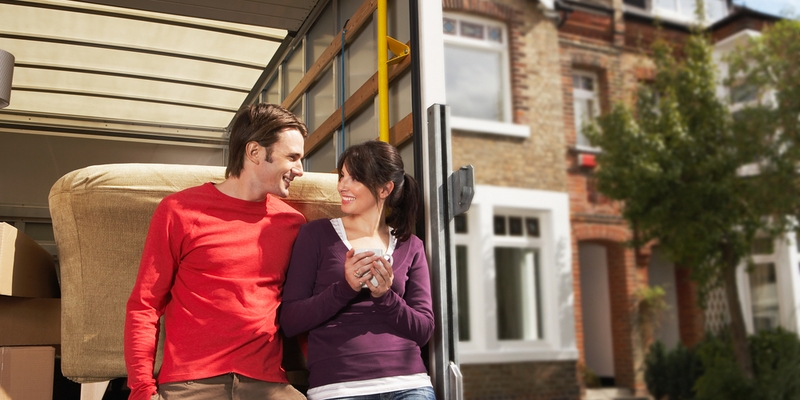
If you are not redirected within 30 seconds, please click here to continue.
Samedi: 10h – 16h HAE

If you are not redirected within 30 seconds, please click here to continue.
If you are not redirected within 30 seconds, please click here to continue.
The difference between your deposit and down payment

This article has been updated from a previous version.
When buying a house, especially for the first time, it’s easy to confuse the concept of your deposit with your down payment. Both require paying substantial sums of money and must be accounted for in your home purchasing budget, along with the cost of home insurance. However, it’s important to note that they are different and distinct.
Related: First-time home buyer incentive in Canada
Paying the deposit for your home
Renters are no strangers to deposits. Typically, when you sign a lease on a new apartment, your new landlord will ask you for a security deposit. This deposit is equivalent to your last month’s rent, even though you may not know when that is.
This security deposit shows you’re serious about renting the unit. At the end of your tenancy, you’ll get the money back, as long as you treat the apartment well and meet all the conditions of your lease.
How the home deposit works
Purchasing a home also requires a deposit, but it’s a little different than the one you pay a landlord.
When you find a house and make an offer on it, you’ll have to include the deposit amount in the purchase agreement. This is one of the many aspects that the seller will look over to determine the strength of your offer.
Unlike the deposit you make on an apartment, you don’t get this one back. Instead, it goes toward your down payment once the deal closes.
Until the deal closes, as the successful bidder on the property, your deposit should be held in trust by the real estate brokerage of the seller’s agent. In the rare and extreme case that you have a dispute with the seller, they can hold onto your deposit or keep it to account for damages, but they can’t just take the money and run.
These deposits usually take the form of certified cheques, bank drafts, money orders, and electronic transfers.
As the successful bidder, your deposit will accumulate interest, provided it’s specified in the Agreement of Purchase and Sale.
The Agreement of Purchase and Sale is a legal document that outlines the terms and conditions of your home purchase. It’s important to read this document carefully and understand all its terms. If you have any doubts, you should consult with a real estate attorney or professional.
Related: Looking for a new home? Why you need to pre-qualify first
How much is the deposit?
Most buyers will want to make a deposit that’s at least 5% of the purchase price, as it tells the seller your finances are in order. The higher the deposit, the more attractive your offer for the home is. In general, the deposit amount is guided by the purchase price as well as how quickly you’ll be closing the deal.
When the sale is finalized, the original deposit, along with the accumulated interest will be applied against the total purchase price and becomes part of the down payment.
What happens to the deposit if you don’t buy the house?
In most cases, your deposit is lost if the sale doesn’t close. However, you may receive the deposit back if the offer comes with certain contingencies, such as the need for a property to pass a home inspection.
If you incorporate a “subject to financing” clause in your Purchase and Sales Agreement when submitting your offer, it safeguards your deposit if your mortgage isn’t approved in the given time frame.
But if you make an offer and change your mind about purchasing the house, not only are you likely to lose your deposit, but you could also face a potential lawsuit for any damages suffered by the seller.
Related: What’s the “buyer beware” principle when it comes to buying a home?
Paying the down payment
If you thought the deposit was a large lump sum, wait until you make the down payment — it’s going to be at least the same amount, but ideally, you’ll want to pay more than 5%.
What is a down payment?
A down payment is the portion of the home’s cost that you pay upfront to finalize the purchase of a home once the seller agrees to your offer. The remaining amount is covered and paid through your mortgage.
When do you pay the down payment?
The down payment is paid the day the sale of the house closes, and for most first-time home buyers, it represents years of tight budgeting and saving. Like the deposit, it should be at least 5% of the purchase price, but the more you can put down the better. Homes priced over $1,000,000 will require a 20% down payment due to insurance guidelines set by the Canadian Mortgage and Housing Corporation (CMHC).
It’s rare for first-time buyers to be able to buy a new house outright, and your down payment will offset what your mortgage will be. Mortgage lenders will also want to know the source of your down payment.
Related: Dos and don’ts when getting mortgage from a private lender
How much is the down payment?
Five per cent is the minimum down payment to finance a home with a mortgage, but 20% is ideal for a conventional mortgage. Otherwise, your mortgage may be pegged as high-ratio, and you may have to pay mortgage insurance premiums.
Here’s a breakdown for how much you’ll have to pay depending on the price of the home:
Purchase prices less than $500,000: Minimum of 5%
Purchase prices between $500,000 and $999,000: Minimum of 5% on the first $500,000 and 10% of the remainder exceeding $500,000
Purchase prices of $1 million or more: Minimum of 20%
Related: How much mortgage can the median household income afford in these cities?
Snapshot of your costs
Let’s consider a home in Canada with a purchase price of $1 million, which cannot be insured. Here’s how the deposit and down payment might break down:
Property price: $1,000,000
Deposit: A 5% deposit would be $50,000
Down payment: The minimum down payment needed at closing would be $150,000
The deposit is part of the down payment, not in addition to it. So, if you put down a $50,000 deposit, you would then owe the remaining $150,000 of the down payment at closing. Therefore, the total cash you would need upfront is still $200,000 at least.
Property price: $999,999
Let’s now look at a $999,999 home in Canada.
Deposit: A 5% deposit would be $49,999.95
Down payment: The minimum down payment would be $35,000 (5% of the first $500,000) + $49,999.90 (10% of the remaining $499,999), which totals $84,999.90.
The total sum you’ll need to cover both costs is at least $134,999.85.
Remember that this is not an exhaustive list of costs associated with your home purchase. There are other closing costs including, but not limited to, land transfer taxes, home inspection fees, title insurance, property appraisal fee, home insurance, and any broker or legal fees.
Read more: The hidden costs of home buying
Breaking down the mortgage loan insurance plan
If you can’t make a down payment of at least 20% on a home priced under $1,000,000, mortgage default insurance is mandatory. In Canada, there are two private-sector providers, but most new home buyers will likely think of the insurance offered by the CMHC.
The premium for the CMHC mortgage loan insurance is determined as a fraction of the loan, which depends on how large your down payment is. The higher the percentage of the total house price/value that you borrow, the higher percentage you will pay in insurance premiums.
This insurance protects lenders — typically, the bank that provides you with the mortgage — in the event you stop making payments and default on that mortgage. As a homebuyer, this insurance will cost you anywhere between 0.60% and 4.5% of your total mortgage amount. Although it doesn’t add to the overall amount you pay for your home, it allows people who can’t save the 20% down payment to access the real estate market and keeps mortgage rates low by reducing the overall rates of default.
The premiums are paid either through a lump sum upfront or can be blended in with your mortgage loan payments.
Regardless of whether you’re able to make the 20% down payment and avoid the need for mortgage insurance, this transaction and your deposit are probably the biggest sums of money you’ll give anyone in your lifetime.
It’s essential to understand the difference and your obligations to everyone involved in the purchase of your first home.
Read next: Is it smart to invest in property right now?
Compare Mortgage Rates
Engaging a mortgage broker before renewing can help you make a better decision. Mortgage brokers are an excellent source of information for deals specific to your area, contract terms, and their services require no out-of-pocket fees if you are well qualified.
Here at RATESDOTCA, we compare rates from the best Canadian mortgage brokers, major banks and dozens of smaller competitors.
Get money-saving tips in your inbox.
Stay on top of personal finance tips from our money experts!








